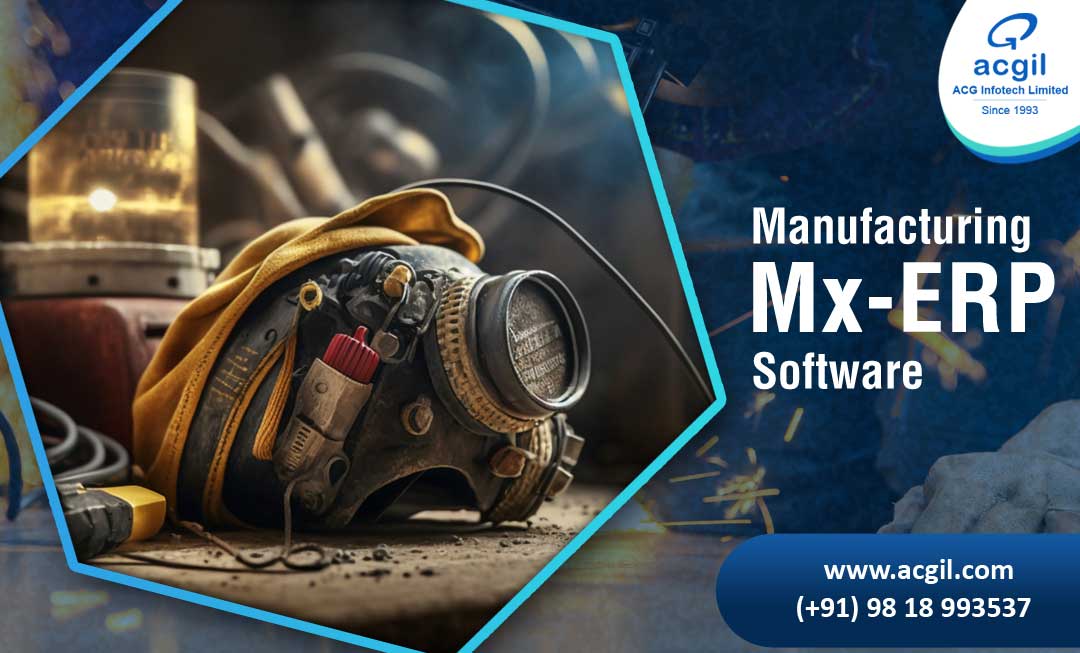Manufacturing companies often deal with complex operations involving inventory management, production planning, resource allocation, and more. To streamline these processes and improve overall efficiency, many businesses turn to Manufacturing ERP (Enterprise Resource Planning) systems. In this article, we will explore what a Manufacturing ERP system is, its benefits, key features, and how it can revolutionize the manufacturing industry.
Table of Contents
- Introduction
- Understanding ERP Systems
- The Role of ERP in Manufacturing
- Benefits of Manufacturing ERP Systems
- Key Features of Manufacturing ERP Systems
- Implementation Considerations
- Case Studies: Successful ERP Implementations
- Overcoming Challenges in ERP Implementation
- Future Trends in Manufacturing ERP Systems
- Conclusion
- FAQs
- Introduction
In the fast-paced world of manufacturing, organizations need efficient tools to manage their operations effectively. This is where Manufacturing ERP systems come into play. A Manufacturing ERP system integrates various business functions and processes into a centralized platform, providing a comprehensive view of the entire manufacturing operation.
- Understanding ERP Systems
Enterprise Resource Planning (ERP) systems are software solutions that enable businesses to manage and automate their core processes. These systems integrate various departments and functions such as finance, human resources, supply chain, and manufacturing, allowing seamless communication and data sharing.
- The Role of ERP in Manufacturing
In the manufacturing industry, ERP systems play a crucial role in optimizing operations and improving productivity. They enable manufacturers to streamline processes like inventory management, production planning, order tracking, and quality control. With a Manufacturing ERP system, companies can have real-time visibility into their operations, ensuring efficient resource allocation and reducing bottlenecks.
- Benefits of Manufacturing ERP Systems
Implementing a Manufacturing ERP system brings numerous benefits to manufacturing companies. Some key advantages include:
Improved Efficiency
By automating manual processes and integrating data across departments, ERP systems eliminate redundant tasks and improve operational efficiency. Manufacturers can save time and effort, allowing them to focus on more critical activities.
Enhanced Decision-Making
Manufacturing ERP systems provide real-time data and analytics, empowering decision-makers with accurate insights. With access to comprehensive reports and dashboards, managers can make informed decisions regarding production, inventory, and resource allocation.
Streamlined Supply Chain
ERP systems enable manufacturers to optimize their supply chain by tracking inventory levels, managing suppliers, and improving order fulfillment. This leads to reduced lead times, improved customer satisfaction, and increased profitability.
Regulatory Compliance
With the ever-evolving regulatory landscape, compliance is crucial for manufacturing companies. ERP systems help organizations stay compliant by maintaining accurate records, enabling traceability, and supporting quality control measures.
- Key Features of Manufacturing ERP Systems
Manufacturing ERP systems offer a wide range of features tailored specifically to the industry’s unique requirements. Some essential features include:
Inventory Management
Efficient inventory management is critical for manufacturing companies. ERP systems provide tools to track inventory levels, manage stock movements, and automate reordering processes.
Production Planning and Scheduling
Manufacturing ERP systems enable effective production planning by forecasting demand, optimizing resource allocation, and creating production schedules.
Quality Control
Maintaining high product quality is essential in manufacturing. ERP systems offer quality control modules that enable companies to define and enforce quality standards throughout the production process.
Shop Floor Control
ERP systems provide real-time visibility into shop floor activities, allowing manufacturers to monitor production progress, track work orders, and manage resources efficiently.
- Implementation Considerations
Implementing a Manufacturing ERP system requires careful planning and consideration. Some key factors to keep in mind include:
Customization
Evaluate whether the ERP system can be customized to align with your specific manufacturing processes and requirements. Customization ensures that the system fits seamlessly into your operations.
Training and Change Management
Proper training and change management are crucial to ensure successful adoption of the ERP system. Employees need to understand how the system works and how it benefits their daily tasks.
Scalability
Choose an ERP system that can scale as your manufacturing business grows. It should be able to handle increased data volume, users, and complexity without compromising performance.
- Case Studies: Successful ERP Implementations
Numerous manufacturing companies have witnessed significant improvements in their operations after implementing ERP systems. Case studies and success stories can provide valuable insights and guidance for those considering ERP adoption.
- Overcoming Challenges in ERP Implementation
Implementing a Manufacturing ERP system can present challenges, such as data migration, resistance to change, and system integration issues. Understanding these challenges and implementing effective strategies can help overcome them and ensure a smooth implementation process.
- Future Trends in Manufacturing ERP Systems
As technology continues to advance, Manufacturing ERP systems are evolving to meet the changing needs of the industry. Some future trends include the integration of IoT (Internet of Things) devices, advanced analytics for predictive insights, and increased focus on cyber-security.
- Conclusion
In conclusion, a Manufacturing ERP system is a powerful tool that can revolutionize the way manufacturing companies operate. It enables seamless integration of processes, improves efficiency, enhances decision-making, and streamlines the supply chain. By carefully considering implementation factors and staying updated on future trends, manufacturers can harness the full potential of ERP systems and drive their businesses towards success. If you are searching for the best ERP software development company in India, ACG Infotech Limited is one of the best option for you. ACG Infotech brings forward an innovative and fresh approach to we & software development services, providing directly without any kind of liaison. At ACG Infotech , projects are not only developed but also planned to get successfully implemented at client end.
- FAQs
Q1: How long does it take to implement a Manufacturing ERP system?
A: The implementation timeline can vary depending on the complexity of your operations and the chosen ERP system. It can range from a few months to over a year.
Q2: Can a Manufacturing ERP system be customized to our specific needs?
A: Yes, most ERP systems offer customization options to tailor the software according to your manufacturing processes and requirements.
Q3: Can a Manufacturing ERP system integrate with other software applications?
A: Yes, ERP systems can integrate with other software applications such as CRM (Customer Relationship Management), MES (Manufacturing Execution System), and BI (Business Intelligence) tools.
Q4: How can a Manufacturing ERP system improve supply chain management?
A: By providing real-time visibility into inventory levels, managing suppliers, and optimizing order fulfillment, ERP systems streamline the supply chain and reduce lead times.
Q5: Are Manufacturing ERP systems suitable for small-scale manufacturing businesses?
A: Yes, ERP systems are beneficial for both small-scale and large-scale manufacturing businesses. They help improve operational efficiency and provide a competitive edge, regardless of the company’s size.

